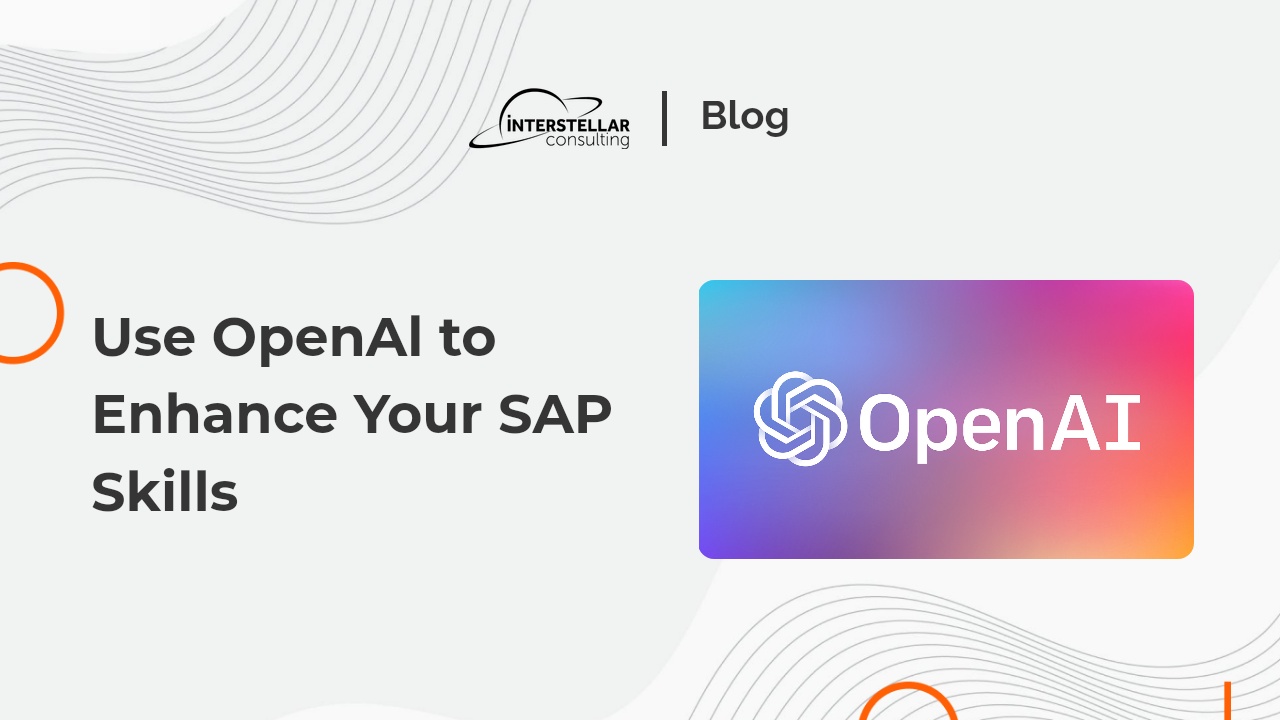As we enter the age of automation, more businesses are implementing artificial intelligence (AI) solutions to boost productivity and efficiency. OpenAI, the leading provider of AI software, is being leveraged by businesses around the world to improve their operational excellence and enhance their customer experience. SAP, the leading enterprise resource planning (ERP) software, is no exception. In this article, we explore how to use OpenAI to enhance your SAP skills.
What is OpenAI?
OpenAI is an AI research laboratory consisting of the world’s leading researchers and engineers. The company’s main focus is on developing safety-conscious AI for the betterment of humanity. OpenAI has developed several models, including GPT-3, that can be utilized in a variety of applications.
What is SAP?
SAP is a popular ERP software that allows businesses to manage their operations, finances, logistics, and customer relations. SAP is used by businesses across all industries, with an estimated 77% of all worldwide transactions touching an SAP system. SAP is critical to the functioning of many businesses and is a valuable skill for many job roles.
How OpenAI Can Enhance SAP Skills
OpenAI can enhance SAP skills in several ways:
- Automating SAP Processes
OpenAI can be used to automate several SAP processes. This can save time and reduce the risk of errors. For example, OpenAI can help to automate the procurement process by identifying suppliers and generating purchase orders. - Trained for Specific SAP Tasks
OpenAI models can be trained on specific SAP tasks to improve their accuracy and efficiency. For example, an OpenAI model can be trained to identify and resolve issues with SAP HANA database. - Generating SAP Reports with Natural Language Processing
OpenAI is capable of generating natural language responses to user queries. This can be harnessed to generate SAP reports quickly and accurately.
Examples of OpenAI in SAP
Several companies have already implemented OpenAI in their SAP processes.
One example is the use of OpenAI to automate the procurement process at BMW. BMW has implemented an OpenAI model that can generate purchase orders by analyzing supplier data. This has led to cost savings and increased efficiency.
Another example is the use of OpenAI for talent management at HCL Technologies. HCL Technologies is using OpenAI to identify and evaluate talent for their organization. The OpenAI model analyzes resumes, job descriptions, and other documents to match candidates with the right job roles.
Future of SAP with OpenAI
OpenAI is continuously evolving, and future applications in SAP processes are expected.
One potential future application is in predictive analytics. OpenAI models can be trained to identify patterns in SAP data that can help businesses improve their operations.
Another potential future application is in intelligent automation. OpenAI can automate several SAP processes, leading to increased efficiency and productivity.
Getting Started with OpenAI and SAP
To get started with OpenAI and SAP, you must have a basic understanding of both technologies. There are several online courses and resources available to help you learn about OpenAI and SAP.
For example, the OpenAI website provides essential resources and tutorials for implementing OpenAI models. Similarly, SAP provides comprehensive training courses for its ERP software.
Conclusion
OpenAI can enhance SAP skills by automating processes, being trained on specific tasks, and generating reports with natural language processing. Several businesses have already implemented OpenAI in their SAP processes, leading to increased efficiency and cost savings. The future of SAP with OpenAI is promising, with potential applications in predictive analytics and intelligent automation. To get started with OpenAI and SAP integration, one must have a basic understanding of both technologies, and several online resources are available. By leveraging OpenAI, businesses can enhance their SAP skills and achieve operational excellence.



